Travel Trailer Rental Tips Every Canadian Beginner Should Know
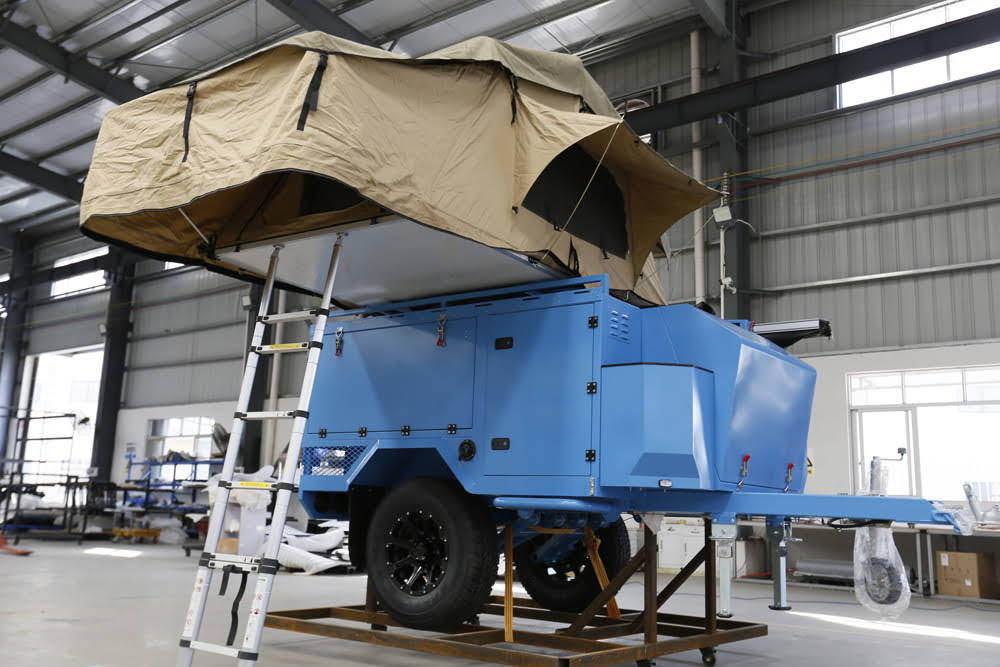
Have you ever wanted to explore Canada’s amazing views? Renting a travel trailer can make that happen. It’s great for beginners who want to try RV travel without buying one.
Whether it’s your first trip or your next adventure, a travel trailer is cozy and easy to use. From the Rocky Mountains to the Maritimes, RVing lets you find cool places and enjoy nature.
Don’t wait! Begin your trip now and make memories to keep forever.
Key Takeaways
Start with small trailers. They are easy to tow and set up. These are great for short trips and save fuel.
Pick a rental company you can trust. Read reviews and check if they offer roadside help. This makes your trip easier.
Plan your trip route and book campsites early. Popular places fill up fast, especially during busy times.
Learn about the trailer before driving it. Practice driving to feel confident and know how to control it.
Pack smart by using a checklist. Don’t bring too much so your space stays comfy. Make sure to pack all the important items.
Types of Travel Trailers for Beginners
Lightweight Travel Trailers
If you’re new to RVing, lightweight trailers are a great choice. These small trailers are easy to pull with SUVs or crossovers. They work well for short trips or weekend adventures.
Even though they’re small, they often have a tiny kitchen, a comfy bed, and a simple bathroom. Setting them up and driving with them is easy, even for first-timers. They also save gas, making them a cheap way to see Canada’s beautiful roads.
Tip: Check your car’s towing power before renting a trailer.
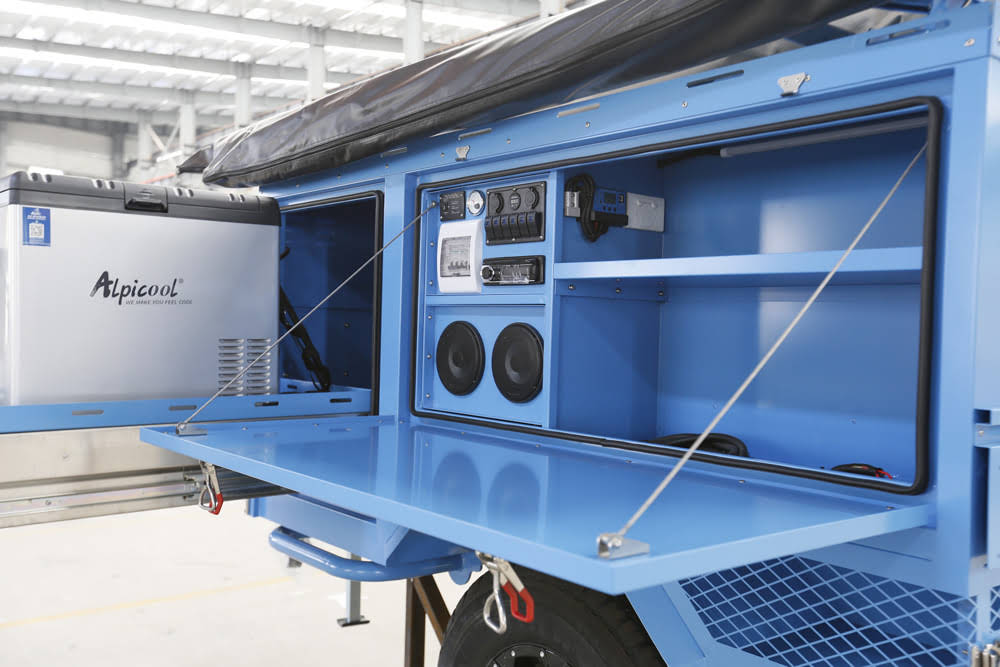
Mid-Sized Travel Trailers
Need more space? Mid-sized trailers give comfort and room. They’re great for families or groups needing extra sleeping and storage areas. Many have full kitchens, bigger bathrooms, and slide-outs for more space. They’re heavier than lightweight trailers but still easy to tow with mid-sized trucks or SUVs. For longer trips, these trailers offer the comfort you’ll want for your journey.
Note: Practice towing and parking a mid-sized trailer first. It’ll help you feel ready and make your trip easier.
Fifth-Wheel Travel Trailers
Want the most comfort? Fifth-wheel trailers are the best pick. They connect to a special hitch in a truck bed, making them stable and easier to tow. Inside, they feel like a small apartment with full kitchens, private bedrooms, and even TVs. They’re great for long trips or feeling at home while exploring Canada. But you’ll need a truck that can tow one.
Pro Tip: Fifth-wheel trailers are big and heavy, so they’re better for experienced drivers. Beginners should start with something smaller.
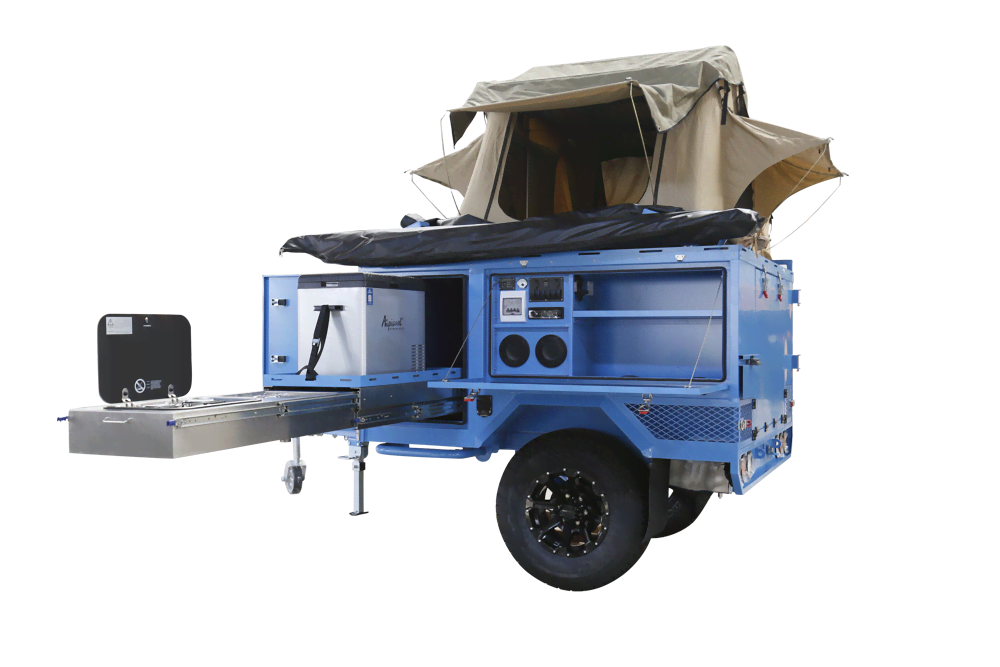
Motorized vs. Towable RVs
When picking an RV, there are two main types: motorized and towable. Each has its own benefits, and the best choice depends on what you need and how comfortable you feel.
Motorized RVs
Motorized RVs, also called motorhomes, combine the vehicle and living space. You don’t need another car to pull them, which makes them very handy. Driving one is like driving a big van or bus. You won’t have to deal with hooking up a trailer.
Why motorized RVs are great:
Easy to Use: Just start the engine and go. No trailer needed.
Fast Setup: Great for trips where you move often. Park and relax quickly.
Extra Seats: Many motorhomes have extra seats, perfect for families.
Tip: If you rent a motorized RV, check if you need a special license. Bigger models might require one.
Towable RVs
Towable RVs, like travel trailers and fifth-wheels, need a car or truck to pull them. They’re popular because they give you more options. You can leave the trailer at the campsite and use your car for exploring.
Why towable RVs are a good choice:
Cheaper: Renting a towable RV costs less than a motorized one.
Lots of Choices: From tiny teardrop trailers to big fifth-wheels, there’s something for everyone.
More Freedom: Park the trailer and use your car to explore nearby places.
Note: Make sure your car can pull the trailer. Check its towing power before renting.
Both types have good and bad points. If you’re new to RVing, think about how much driving and setup you can handle. No matter which you pick, you’ll have an amazing trip!
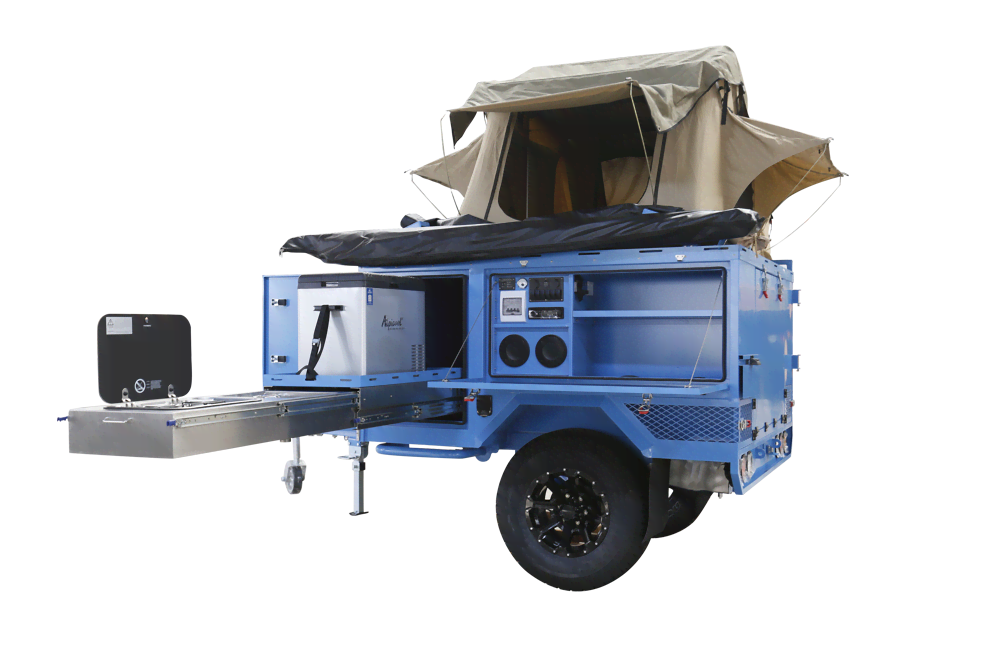
Steps to Rent an RV in Canada
Picking a Trustworthy Rental Service
The first step is finding a good rental service. Choose one that is honest, dependable, and has many options. Websites like Outdoorsy, RVshare, and CanaDream are great choices. These sites connect you with trusted RV companies or private owners. You can find different types of travel trailers, motorhomes, and campers there.
Before picking an RV, read reviews from other renters. Look for comments about the RV’s condition, customer service, and hidden fees. A service with good reviews and clear rules will save you trouble later.
Tip: See if the service offers roadside help. It’s very useful if something goes wrong.
Required Documents and Age Rules
Before your trip, make sure you have the right papers. Most Canadian RV rental companies need a valid driver’s license and proof of insurance. You also need to meet the age limit, usually 21 years old. Some companies may require you to be 25.
Here’s a simple list of common rules:
Requirement | Details |
|---|---|
Driver's License | Must have a valid license |
Insurance | Proof of insurance is needed |
Minimum Age | Usually 21, but check with the company |
License Duration | Must have had a full license for 1 year |
If it’s your first time renting, confirm these details with the company. Some may ask for extra documents, like an international driver’s permit if you’re not from Canada.
Note: Always carry paper copies of your license and insurance. Digital versions might not work everywhere.
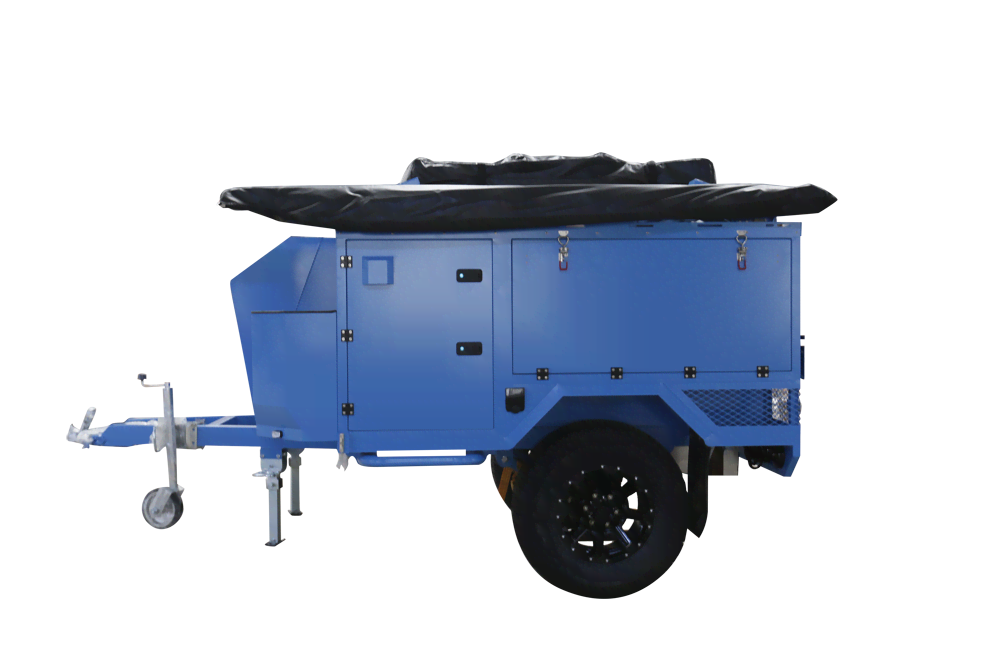
Knowing Rental Costs and Extra Fees
RV rental prices can differ a lot, so know what you’re paying for. Most rentals include basic insurance and liability coverage. But extra fees, like mileage costs, often apply. Mileage fees can range from 17 to 35 cents per mile. Some companies, like RVshare, offer unlimited mileage, so compare options.
Here’s what to check when planning your budget:
Base Fee: This is the daily or weekly rental price.
Mileage Costs: Check if mileage is included or charged separately.
Cleaning Fees: Some companies charge if the RV isn’t returned clean.
Extras: Things like kitchen tools, bedding, or outdoor gear may cost more.
Hidden fees can surprise you, so read all the details carefully. Ask for a full cost breakdown before signing the rental agreement.
Pro Tip: Book early to get discounts and avoid high prices during busy seasons.
Insurance and Liability Basics
When renting an RV, knowing about insurance is very important. It might not be fun to plan, but it can stop big problems later. Here’s how to keep yourself safe and avoid extra costs.
Is Insurance Included in the Rental?
Most Canadian RV rentals come with basic insurance. This usually covers damage to the RV and accidents. But it might not cover everything. For example, personal items or damage from storms may not be included. Always ask for a full list of what the insurance covers.
Tip: Don’t guess about coverage. Read the details or ask questions to be sure.
Should You Add Extra Insurance?
Basic insurance might not be enough for long trips or remote areas. Many rental companies offer extra options like collision coverage or protection for personal items. If you have car insurance, check with your provider. Some plans cover RV rentals, which could save you money.
Liability Coverage and Your Role
Liability insurance helps if you cause an accident. But it has a limit on how much it pays. If costs go over that limit, you’ll need to pay the rest. To avoid this, think about getting more liability coverage. It’s cheaper than paying for damages later.
Why Roadside Help Matters
Even good RVs can break down. Many rental companies offer roadside help with towing, flat tires, or lockouts. You can add this service for a small fee. It’s smart to have, especially if you’re far from cities.
Pro Tip: Keep the roadside assistance number handy. It’s better to have it and not need it.
Final Thoughts on Insurance
Insurance might seem like an extra cost, but it’s worth it. Whether you’re visiting the Rockies or driving the Cabot Trail, being covered lets you enjoy your trip. Take time to learn your options and pick the best coverage for your needs.
Planning Your Travel Trailer Trip
Planning Your Travel Route
Before you start driving, plan your route carefully. Canada is huge and has many different landscapes. Whether you’re visiting the Rockies, the Maritimes, or somewhere else, knowing your path makes things easier. Pick the places you really want to see first. Then, connect them using scenic or easy-to-drive roads.
Use tools like Google Maps or RV apps to plan your trip. These apps show RV-friendly roads, gas stations, and rest stops. Try to avoid gravel roads. They can be rough on trailers and may cause things inside to move around.
Tip: Don’t drive too long each day. Aim for 4-5 hours to stay rested and enjoy the views.
Reserving Campgrounds Early
Finding a good place to park your RV is important. Canadian campgrounds range from simple spots to ones with full services. Some have electricity, water, and waste stations, while others are more basic.
Book your campgrounds early, especially during busy seasons. Popular places fill up fast, and you don’t want to be left without a spot. Check what each campground offers to make sure it fits your needs. If you have kids or pets, look for family-friendly or pet-friendly options.
Pro Tip: Read online reviews before booking. Other campers often share useful tips about cleanliness, services, and the campground’s atmosphere.
Getting Ready for Weather and Roads
Canada’s weather can change quickly, so be ready for anything. In summer, you might get sudden rain, and in winter, snow or ice. Always check the weather for your route and pack the right gear.
Roads can also vary. Some are smooth highways, while others might be gravel or dirt. These can be hard for trailers, so drive slowly and secure items inside to stop them from moving.
Here are some tips to remember:
Campgrounds differ by area. Some may not have electricity or waste stations, so plan ahead.
Pack for all weather, including rain jackets and warm clothes.
Keep an emergency kit in your RV with a flashlight, first aid items, and a tire repair kit.
Note: Always check road updates before leaving. Apps like DriveBC or 511 Alberta give real-time info on closures and hazards.
Planning ahead helps you stay safe and enjoy your trip wherever you go.
Test Driving and Trailer Familiarization
Before hitting the road, it’s a good idea to get comfortable with your travel trailer. Test driving and familiarizing yourself with the trailer can save you from surprises later. It’s not as intimidating as it sounds, and with a little practice, you’ll feel like a pro in no time.
Why Test Driving Matters
Driving with a trailer attached feels different from driving your car alone. The added weight and length can change how your vehicle handles. Test driving helps you understand these changes and builds your confidence.
Here’s what you’ll notice during a test drive:
Turning Radius: Trailers need wider turns. Practice turning in an open area to get a feel for it.
Braking Distance: The extra weight means you’ll need more time to stop. Start braking earlier than usual.
Blind Spots: Trailers can block your view. Adjust your mirrors to cover as much of the road as possible.
Tip: Practice in a quiet parking lot or on a low-traffic road. It’s the perfect way to learn without pressure.
Getting Familiar with the Trailer
Before you drive off, take some time to explore the trailer. Knowing how everything works will make your trip smoother.
Here’s a quick checklist to guide you:
Hitch Connection: Learn how to properly attach and detach the trailer. Double-check that it’s secure before driving.
Lights and Signals: Test the brake lights, turn signals, and hazard lights. These are crucial for safety.
Leveling System: Understand how to level the trailer at campsites. A level trailer makes cooking, sleeping, and using the bathroom more comfortable.
Appliances and Utilities: Familiarize yourself with the kitchen, bathroom, and any onboard systems like water or electricity.
Pro Tip: Ask the rental company for a walkthrough. They can show you how to operate everything and answer your questions.
Practicing Essential Maneuvers
Once you’re comfortable with the basics, practice some key maneuvers. These skills will come in handy during your trip.
Backing Up: Reversing with a trailer can feel tricky at first. Use your mirrors and go slow. Small steering adjustments work best.
Parking: Practice parking in different spots, like angled spaces or tight areas. This will prepare you for campgrounds.
Lane Changes: Learn to switch lanes safely. Signal early and check your mirrors carefully.
Note: If you’re traveling with someone, ask them to guide you while parking or backing up. A second pair of eyes makes it easier.
Final Confidence Boost
Feeling nervous? That’s normal for beginners. The key is to take your time and practice. The more you drive, the more natural it will feel.
Encouragement: Remember, every experienced RV traveler started as a beginner. You’ve got this!
By test driving and familiarizing yourself with the trailer, you’ll set yourself up for a stress-free adventure. Take it slow, stay patient, and enjoy the journey ahead.
Packing Essentials for Your RV Adventure
Kitchen and Cooking Supplies
Cooking in your travel trailer can be fun and saves you money. Pack the basics like pots, pans, and utensils. Don’t forget a cutting board and a sharp knife for meal prep. Bring reusable plates, bowls, and cups to cut down on waste. A portable grill or camping stove is handy for outdoor cooking. Stock up on non-perishable foods like pasta, canned goods, and snacks. If you’re planning to cook fresh meals, pack a cooler or use the trailer’s fridge to keep ingredients fresh.
Tip: Don’t forget essentials like dish soap, sponges, and trash bags. Cleaning up after meals keeps your space tidy and pest-free.
Bedding and Personal Comfort Items
A good night’s sleep makes your trip more enjoyable. Bring bedding that fits the trailer’s beds, like sleeping bags or fitted sheets. Add pillows and blankets for extra comfort. If you’re traveling during colder months, pack a warm comforter or thermal blankets.
For personal comfort, include items like slippers, a cozy robe, and your favorite pajamas. A small fan or portable heater can help regulate the temperature inside the trailer. Don’t forget towels for showers and quick-dry towels for outdoor activities.
Pro Tip: Pack a few extra blankets. They’re great for chilly nights or sitting outside under the stars.
Safety and Emergency Equipment
Safety should always come first. Pack a first-aid kit with bandages, antiseptic wipes, and any medications you might need. A flashlight or headlamp is essential for nighttime visibility. Bring extra batteries or a rechargeable power bank to keep your devices running.
Include tools like a multi-tool, duct tape, and a tire repair kit. These can help with minor repairs on the road. A fire extinguisher is a must-have for emergencies. If you’re camping in remote areas, consider a GPS device or a map in case you lose cell service.
Note: Always check the trailer’s safety equipment before leaving. Make sure the smoke detector and carbon monoxide detector are working properly.
Entertainment and Outdoor Gear
Your RV adventure isn’t just about the journey—it’s also about having fun along the way! Packing the right entertainment and outdoor gear can make your trip even more memorable. Whether you’re relaxing at the campsite or exploring the great outdoors, here’s what you’ll need.
Indoor Entertainment
Rainy days or quiet evenings call for some indoor fun. Bring along a few board games or card games that everyone can enjoy. A deck of cards is small but offers endless possibilities for entertainment. If you love reading, pack a couple of books or download e-books on your tablet.
For movie nights, load up your laptop or tablet with your favorite shows and films. Don’t forget headphones if others want some quiet time. If you’re traveling with kids, coloring books, puzzles, or small toys can keep them entertained for hours.
Tip: Download movies, music, or podcasts before your trip in case you lose internet access.
Outdoor Fun
Exploring the outdoors is one of the best parts of RVing. Pack a pair of binoculars for birdwatching or spotting wildlife. A lightweight hiking backpack is perfect for day trips. If you’re near water, bring fishing gear, swimsuits, or inflatable kayaks for some aquatic fun.
Camping chairs and a portable hammock are great for relaxing outside. Don’t forget a frisbee, soccer ball, or badminton set for some active fun with your group.
Capture the Memories
A camera or smartphone is essential for capturing those breathtaking views. Bring a portable tripod for group photos or time-lapse shots of sunsets.
Pro Tip: Keep a journal to jot down your favorite moments. It’s a great way to relive your adventure later!
With the right entertainment and outdoor gear, your RV trip will be packed with fun and unforgettable memories. 🎒🌟
Common Mistakes to Avoid When You Rent an RV
Packing Too Much or Too Little
Packing for an RV trip can be confusing. Bringing too much stuff makes the trailer crowded. Forgetting important things, like cooking tools or warm clothes, can ruin your trip.
Make a checklist before packing to stay organized. Choose items that can be used in different ways, like a jacket for rain and cold. Pack simple kitchen tools, such as a pot, pan, and utensils. Don’t forget snacks and food that won’t spoil.
Tip: Save space for souvenirs or things you buy during your trip.
Ignoring Weight and Towing Limits
Every RV and car has weight rules. Breaking these rules can cause accidents or damage your car. A heavy trailer is harder to control and unsafe to drive.
Check the trailer’s weight limit and your car’s towing power. These numbers show how much weight is safe. If you’re unsure, ask the rental company for help.
Pro Tip: Spread the weight evenly inside the trailer. This keeps it balanced and easier to tow.
Not Securing Items Inside the Trailer
Things inside the trailer can move or fall while driving. This can break items or hurt someone. Many beginners forget to secure their stuff, causing problems on the road.
Before driving, make sure everything is packed safely. Use straps or bins to keep items in place. Heavy things should go on the floor, and lighter ones in cabinets.
Note: Lock cabinet doors and drawers. Sudden stops can make them fly open.
Avoiding these mistakes will make your RV trip safer and more fun. Planning ahead helps you enjoy your adventure without stress.
Forgetting About Waste Disposal and Maintenance
Taking care of waste and maintenance isn’t fun, but it’s important. Ignoring these jobs can cause bad smells, clogs, or even fines. Doing them on time keeps your trip easy and stress-free.
Waste Disposal: What You Should Know
Your trailer has two tanks: one for toilet waste (black water) and one for sink or shower water (gray water). These tanks need to be emptied often at special dump stations. If you forget, they can overflow and smell bad.
Here’s how to manage waste properly:
Find Dump Stations: Use apps like RV Dump Stations to locate nearby spots.
Empty Tanks Often: Don’t wait until they’re full. Empty them every few days.
Use Special Chemicals: Add RV-safe treatments to break down waste and stop odors.
Tip: Always wear gloves and use disinfectant wipes when handling waste. Stay clean and safe.
Maintenance: Keep Your Trailer Working Well
A well-cared-for trailer makes your trip easier. Skipping maintenance can cause breakdowns or expensive repairs.
Here’s a simple checklist to follow:
Check Tires: Look at tire pressure daily. Low pressure can cause accidents.
Secure Everything: Make sure the hitch and electrical plugs are tight before driving.
Clean Appliances: Wipe the fridge, stove, and sink to avoid dirt buildup.
Watch Levels: Check propane, water, and battery levels often.
Pro Tip: Bring basic tools like a wrench and duct tape for small fixes.
By keeping up with waste and maintenance, you’ll avoid problems and enjoy your trip more. Being ready and doing small tasks makes a big difference. 🚐✨
Renting a travel trailer is a great way to see Canada’s amazing scenery. By using these tips, you can have a fun and easy RV trip. Plan ahead, pack wisely, and learn how the RV works to avoid problems. Whether you’re camping in parks or finding cool RV spots, being ready makes your trip unforgettable.
Here’s why being prepared helps:
Benefit | Explanation |
|---|---|
Better Experience | Planning makes sure you’re ready, so the trip is more fun. |
Save Money | National parks cost less than staying at fancy resorts. |
Less Stress | A checklist helps you remember everything and stay calm. |
Flexible Lodging | Knowing parking options, like Walmarts, gives you more choices for where to stay. |
Safer Travels | Practicing with the RV before the trip makes driving safer. |
Start your RV adventure in Canada today and enjoy unforgettable moments in nature. Have fun RVing in Canada! 🚐🍁
FAQ
What kind of driver’s license is needed to rent a travel trailer in Canada?
Most companies accept a regular Class 5 driver’s license. For bigger motorhomes, check if a special license is needed. Always ask the rental company before booking.
Tip: Visitors from other countries should bring an international driver’s permit along with their license.
Can I drive a rented travel trailer across provinces?
Yes, you can! Canada’s provinces are linked by beautiful highways. Most rental agreements allow travel across borders. Still, check for any rules or extra fees.
Note: If you’re going to the U.S., tell the rental company and confirm your insurance covers it.
How can I find campgrounds that allow RVs?
Apps like Campendium or AllStays help you find RV-friendly campgrounds. Many national and provincial parks also have RV spots with hookups. Book early during busy seasons to get a spot.
Pro Tip: Choose campgrounds with dump stations and electricity if your trailer needs them.
What should I do if the trailer breaks down on my trip?
Call the rental company right away. Most good companies include roadside help in their plans. Keep their emergency number handy and stay calm while waiting for assistance.
Tip: Before your trip, ask the rental company about their roadside help policy and what it covers.
Is driving with a travel trailer difficult?
It takes some practice, but it’s not too hard! Start with short drives to get used to towing. Practice turning, stopping, and parking in a quiet area first.
Encouragement: You’ll learn quickly! Most beginners feel confident after a few hours of practice.
See Also
Essential Advice for Choosing Your Perfect Tent Trailer
Enhance Your Camping Experience with Travel Trailers Now
Uncover the Finest Mini Trailers for 2025 Journeys
Best Travel Trailers Compatible with Small Cars in Australia
